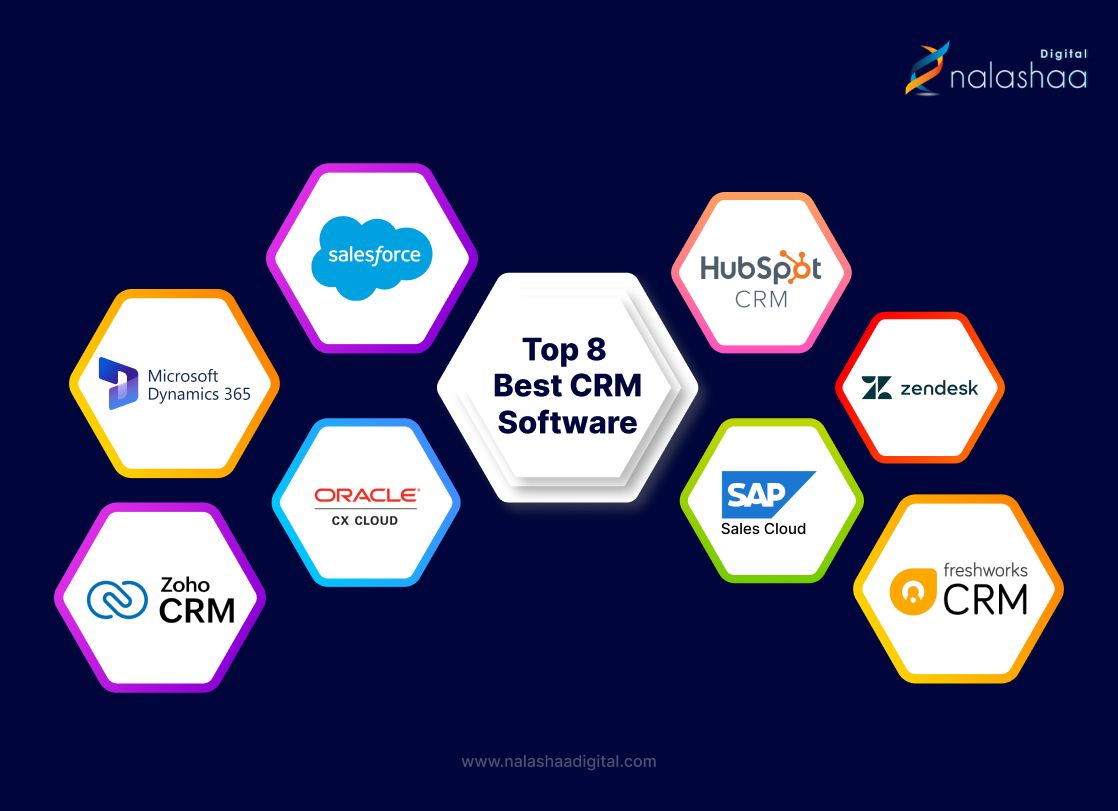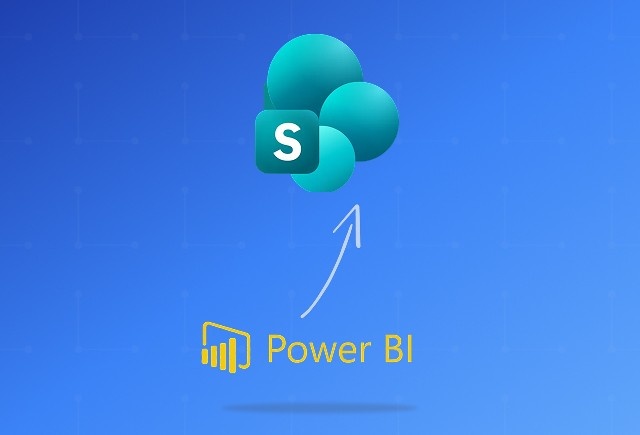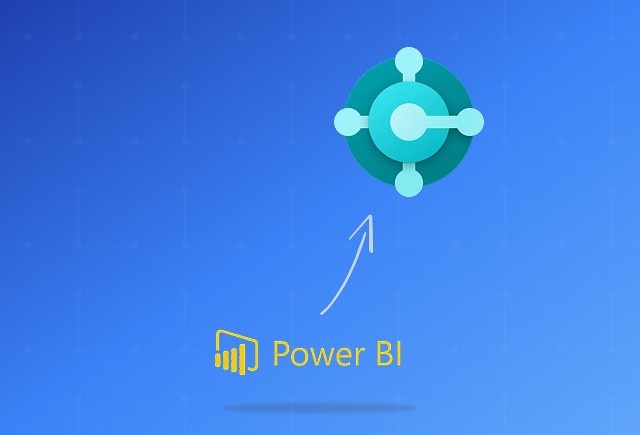Best CRM Software for Small Businesses in 2025 [Updated List]
Dec 09, 2024 Aiswarya Madhu
As we move into 2025, the demand for CRM solutions shows no signs of slowing down. Businesses are increasingly focused on enhancing customer engagement and operational efficiency, pushing global CRM spending past the $41 billion mark. This surge is fueled by innovations in AI and machine learning, which drive personalized experiences and actionable insights. Both large enterprises and small businesses are investing heavily in CRM, with industries like Finance, Public Administration, and Technical Services at the forefront. In an evolving digital landscape, CRM has become indispensable for companies looking to remain competitive, agile, and customer centric. Here’s a look at the best CRM software for small businesses leading the transformation in 2025.
Top CRM Solutions of 2025
This list is curated based on user reviews, platform capabilities, and relevance to small business needs—helping you find the best CRM software for small businesses in 2025.

Salesforce
Salesforce CRM stands as a premier choice for businesses seeking to optimize their customer relationship management and sales processes. With its extensive functionalities and a customer-centric approach, it has been widely adopted across various industries. This report aims to provide a comprehensive overview of Salesforce CRM, including relevant statistics, peer reviews, and insights into its strengths and weaknesses.
Statistics Overview
- Market Share: Salesforce holds a 21.8% share of the CRM market, surpassing its four leading competitors combined.
- Customer Base: Over 150,000 businesses worldwide utilize Salesforce, highlighting its widespread acceptance and reliability.
- Geographical Distribution: The Americas generated the largest portion of Salesforce's revenue (66.81%), totaling around $23.29 billion in 2024.
- Adoption Rate: Salesforce has been recognized as the #1 CRM provider for 11 consecutive years by IDC, emphasizing its industry dominance and continued user trust.
Key Features and Benefits
- Automation: Salesforce automates many routine tasks, freeing team members to focus on higher-value activities. This includes automated email tracking and lead qualification processes.
- Data Management: The platform consolidates customer data from multiple sources, allowing for a comprehensive view of customer interactions and preferences. This capability enhances targeted marketing efforts and improves overall customer engagement.
- Analytics and Reporting: Salesforce provides powerful analytics tools that assist businesses in gaining actionable insights into their sales performance, customer behaviors, and marketing effectiveness.
- Customization and Scalability: The CRM is highly customizable, making it suitable for organizations of varying sizes and industries. Businesses can tailor Salesforce to fit their specific needs, which enhances its utility as they grow.
Peer Reviews and User Feedback
Salesforce CRM has received extensive user feedback highlighting both strengths and areas for improvement. Users often praise its user-friendly interface, though new users may encounter a learning curve.
The CRM's comprehensive functionality is highly valued, as it seamlessly integrates sales, marketing, and service operations, creating smooth interdepartmental workflows.
Salesforce's robust community support and resources, such as Trailhead, are appreciated, yet some users find customer support response times slower than expected. Cost is a noted factor, with many users pointing out the high subscription fees, particularly challenging for smaller businesses. Generally reliable in performance, Salesforce occasionally experiences system outages, which can be disruptive during critical tasks.
Microsoft Dynamics 365
Microsoft Dynamics 365 is a cloud-based suite of business applications designed to meet the diverse needs of businesses through integrated Customer Relationship Management (CRM) and Enterprise Resource Planning (ERP) solutions.
Since its rebranding in 2016, Dynamics 365 has rapidly become a favored choice for small and medium sized organizations looking to streamline operations, enhance customer engagement, and drive growth. This report provides a comprehensive overview of Dynamics 365, highlighting relevant statistics, peer reviews, and insights into its strengths and weaknesses.
Statistics Overview
- Market Share: Microsoft Dynamics 365 holds an approximate 4.10% market share in the CRM segment, ranking fifth among its competitors. In the ERP market, Dynamics 365 has achieved a market share of around 27%, suggesting significant growth from just 4% in 2016.
- Revenue Growth: Dynamics 365 generated approximately $5.44 billion in revenue for the fiscal year ending June 30, 2023, marking a 16% increase year-over-year.
- Customer Base: Over 600,000 organizations, including 97% of Fortune 500 companies, utilize Dynamics 365 across various sectors, indicating its robust acceptance.
- Global Reach: The majority of Dynamics 365 customers are in the United States (approximately 49%), followed by the United Kingdom (around 8%) and Canada (about 6%).
- Employee Size Distribution: Among its users, 49% are from small businesses with fewer than 50 employees, while 35% are medium-sized enterprises (50-1,000 employees).
Key Features and Benefits
CRM Modules
- Sales: Streamlines the sales process with tools for lead and opportunity management, sales forecasting, and target tracking through AI-driven insights.
- Customer Service: Enhances customer interactions with case management, service analytics, and knowledge management ensuring timely support.
- Marketing: Facilitates personalized marketing campaigns through lead management, multi-channel engagement tracking, and performance analytics.
- Field Service: Optimizes scheduling and management of field technicians to improve service delivery and customer satisfaction.
- Project Service Automation: Manages project planning, resource allocation, and performance tracking to ensure project success.
ERP Modules
- Finance: Automates financial management processes including budgeting, reporting, and compliance, providing real-time financial insights.
- Supply Chain Management: Integrates operations from inventory management and procurement to logistics, fostering efficiency.
- Business Central: Designed for small to medium-sized businesses, it offers a comprehensive solution that integrates CRM and ERP functionalities.
Peer Reviews and User Feedback
Feedback on Dynamics 365 highlights both its strengths and areas for improvement, with a particular focus on customization and usability. Users often appreciate the platform's familiarity, as it shares an interface style with other Microsoft products, making it easier to navigate for those already using Microsoft tools.
Dynamics 365’s highly customizable licensing structure is also valued, enabling businesses to select only the features they need, which helps optimize costs. Its seamless integration with Microsoft applications like Office 365 and Power BI enhances productivity and promotes a cohesive workflow.
Though pricing is sometimes seen as a hurdle, especially for smaller businesses, users acknowledge that the extensive feature set and flexible licensing can make it a worthwhile investment.
HubSpot CRM
HubSpot CRM is a popular customer relationship management platform designed to provide companies with tools to manage customer interactions, sales processes, and marketing efforts all in one place. With its user-friendly interface and robust features, HubSpot CRM aims to cater to businesses of all sizes, especially small and medium enterprises. This report provides a comprehensive overview of HubSpot CRM, including relevant statistics, peer reviews, and insights into its strengths and weaknesses.
Statistics Overview
- Market Share: HubSpot CRM holds approximately 5.27% of the global CRM market, ranking it among the top competitors in the industry. It trails behind market leaders like Salesforce and Microsoft Dynamics.
- Customer Base: As of early 2024, HubSpot CRM has over 216,840 paying users across more than 135 countries, showcasing its global reach and popularity.
- Product Usage: HubSpot offered its CRM software for free, contributing to a significant increase in its user base, with notable adoption among startups and small businesses.
- Regional Distribution: The majority of HubSpot's revenue comes from the Americas (approximately 60.83%), followed by Europe and Asia Pacific, indicating its strong performance in these key markets.
Key Features and Benefits
- Lead Management: HubSpot allows users to effectively track and manage leads throughout the sales process. It offers tools for lead scoring, segmentation, and nurturing based on user interactions and behavior.
- Sales Pipeline Management: The platform provides visual sales pipeline tools that enable teams to track the progress of leads and deals, ensuring efficient follow-ups and closing strategies.
- Automated Workflows: HubSpot's automation capabilities simplify routine tasks, such as sending follow-up emails and managing marketing campaigns, enhancing team productivity.
- Integrated Marketing Solutions: Users have the ability to centralize marketing efforts with integrated tools for email marketing, social media management, and content creation, enabling cohesive campaigns and reporting.
- Robust Analytics and Reporting: HubSpot offers comprehensive analytics to measure campaign performance, customer interactions, and sales outcomes, helping businesses make informed decisions.
Peer Reviews and User Feedback
HubSpot CRM receives mixed feedback, with users often praising its intuitive interface and easy onboarding, making it accessible even for those less tech-savvy. Customer support is well-regarded, with resources like HubSpot Academy providing valuable training.
The free CRM version is a major advantage, offering essential features without a financial commitment, though some users find the pricing structure for advanced features expensive as they scale. Customization options are noted to be somewhat limited, which can be restrictive for businesses with specific needs. While HubSpot is popular with small to mid-sized businesses, some larger organizations report challenges in scaling effectively within the platform.
Looking to streamline your sales and marketing? Check out our guide on integrating HubSpot with Dynamics 365 for a seamless, data-driven workflow!
Zoho CRM
Zoho CRM is a comprehensive and affordable customer relationship management software designed to meet the needs of businesses of all sizes. Known for its robust feature set and flexibility, Zoho CRM aims to streamline sales, marketing, and customer support processes. This report provides an overview of Zoho CRM, including relevant statistics, peer reviews, and insights into its strengths and weaknesses.
Statistics Overview
- Market Share: Zoho CRM holds approximately 3.43% of the global CRM market, positioning itself as a strong contender among competitors.
- Customer Base: As of 2024, Zoho boasts more than 100 million global users, reflecting its popularity and extensive adoption across various sectors.
- Geographical Distribution: The United States is a key market for Zoho, contributing around 51.63% to its customer base, followed by significant users in India and the United Kingdom.
- Customer Segmentation: About 47% of Zoho's users are small businesses with fewer than 50 employees, highlighting its appeal to startups and SMEs.
Key Features and Benefits
- Sales Force Automation: Automates routine sales tasks, enabling sales teams to focus on closing deals and engaging with clients instead of manual processes. Features include lead and deals tracking, sales forecasting, and performance management.
- Multi-Channel Communication: Zoho CRM supports communication through various channels such as email, social media, live chat, and telephony, allowing users to engage customers across different platforms.
- Marketing Automation: Facilitates lead generation and nurturing with tools for email marketing, campaign management, and performance analytics, helping businesses to reach their audience effectively.
- Customization Options: Users can tailor the CRM to fit their unique needs through customizable dashboards, fields, and reports, accommodating diverse business processes and workflows.
- AI and Analytics: Integrates AI to assist in lead scoring, predictive sales analytics, and task automation, providing valuable insights into customer behavior and sales trends.
Peer Reviews and User Feedback
Zoho CRM receives mixed feedback, with many users appreciating its user-friendly interface and quick onboarding, which makes it accessible for small businesses new to CRM. Its affordability is frequently highlighted, offering a cost-effective option compared to other leading CRMs. Users value Zoho’s extensive customization options, though these can lead to a steep learning curve. Some integration challenges are noted, with limited compatibility reported with other solutions. While customer support is generally commended, response times could be improved. Additionally, some users find the reporting features less advanced than competitors, which may impact data analysis and decision-making.
Oracle CX Cloud
Oracle CX Cloud is a comprehensive suite of cloud-based applications designed to enhance customer experiences across marketing, sales, service, and commerce. As part of Oracle's broader cloud offerings, the CX Cloud aims to provide organizations with the tools necessary to gain insights into customer behavior, personalize interactions, and drive sales efficiency.
Statistics Overview
- Market Share: Oracle CX Cloud holds approximately 0.09% of the customer experience market.
- Customer Base: Oracle CX Cloud has over 5,000 customers globally, including many Fortune 500 companies, showcasing its adoption across diverse industries.
- Geographical Presence: The Americas generated about 61% of Oracle's total cloud revenue, emphasizing the strong market presence in this region.
- Industry Adoption: Oracle CX Cloud has found application in various sectors, including retail, financial services, telecommunications, and technology, reflecting its versatility.
Key Features and Benefits
- Sales Automation: Provides comprehensive tools for managing sales processes, including lead generation, opportunity tracking, and sales performance analytics, enabling sales teams to close deals more efficiently.
- Marketing Capabilities: Features integrated marketing automation tools that facilitate targeted campaigns, customer segmentation, and engagement tracking, allowing for personalized marketing strategies across channels.
- Customer Service Management: Enhances customer interactions with omnichannel support capabilities, including case management, self-service options, and unified data management, resulting in improved customer satisfaction.
- Data-Driven Insights: Utilizes advanced analytics and artificial intelligence to deliver actionable insights into customer behaviors and preferences, helping organizations make informed decisions based on real-time data.
- Seamless Integration: Offers robust integration capabilities with other Oracle applications and third-party solutions, allowing businesses to leverage existing tools and maximize operational efficiency.
Peer Reviews and User Feedback
Oracle CX Cloud receives mixed feedback, with users often praising its comprehensive feature set, which covers all aspects of customer engagement and enhances productivity. The platform's strong focus on data security is another highlight, offering peace of mind for organizations managing sensitive information. However, some users find customization options limited compared to other CRMs, which can hinder workflow tailoring. The learning curve is also noted as steep, especially for those unfamiliar with Oracle’s ecosystem, often requiring significant training. Additionally, the high cost can be a drawback for smaller businesses, and the implementation process is described as complex and time-consuming, often needing extensive planning and support.
SAP Sales Cloud
SAP Sales Cloud is focused on enhancing sales automation, customer engagement, and analytics. It is commonly used by medium and large enterprises looking for a sophisticated CRM solution to drive sales and customer satisfaction. Like Oracle, SAP Sales Cloud does not disclose pricing publicly, encouraging businesses to contact them for customized pricing.
Statistics Overview
- Market Share: SAP Sales Cloud holds approximately 0.63% of the global CRM market, carving out a significant position among leading providers such as Salesforce and Microsoft Dynamics 365.
- Customer Base: SAP Sales Cloud has been adopted by over 6000 customers globally, spanning various industries, including manufacturing, retail, and financial services.
- Regional Distribution: North America accounts for about 55% of SAP Sales Cloud's customer base, followed by substantial users in Europe and Asia.
- Industry Adoption: SAP Sales Cloud is particularly favored in industries such as manufacturing, where 73% of users report improved sales process efficiency through enhanced automation features.
Key Features and Benefits
- Sales Force Automation: Automates routine sales tasks such as lead tracking, forecasting, and order processing to ensure sales teams can focus on strategic activities and customer interactions.
- Intelligent Lead Management: Utilizes AI-powered insights to help teams prioritize leads based on potential value and engagement, enabling more effective sales strategies.
- Omni-Channel Engagement: Supports customer interactions across various channels, such as email, social media, and live chat, allowing for a seamless experience in customer communications.
- Advanced Analytics: Provides robust analytics and reporting tools that deliver actionable insights from sales data, helping businesses understand market trends and customer behaviors.
- Integration Capabilities: Seamlessly integrates with other SAP solutions and third-party applications, enabling businesses to create a cohesive technology environment and leverage existing investments.
Peer Reviews and User Feedback
SAP Sales Cloud has received mixed feedback, with users appreciating its comprehensive functionality that effectively supports a wide range of sales processes. SAP’s strong focus on data security and compliance is particularly valued in regulated industries. However, some find the platform complex, with a steep learning curve that often requires extensive training. Opinions on the user interface are divided, with some finding it intuitive and others seeing it as cluttered. The high pricing is noted as a drawback, especially for smaller businesses, and the implementation process is frequently described as resource-intensive and time-consuming, necessitating close collaboration with SAP's professional services.
Recommended Reading: Microsoft Dynamics vs SAP: A Complete Guide
Freshworks CRM
Freshworks CRM is a comprehensive platform that integrates sales, marketing, and customer support functions. With four pricing plans, including a free version, it is an accessible choice for small to medium businesses. Paid plans start at $29 per user per month, with options for more advanced needs as businesses grow.
Statistics Overview
- Market Share: Freshworks CRM holds approximately 2.01% of the global CRM market, positioning itself as a competitive player in the industry alongside major players like Salesforce and HubSpot.
- Customer Base: As of 2024, Freshworks CRM boasts over 50,000 customers worldwide, indicating its widespread adoption across various sectors, including technology, retail, and services.
- Revenue Growth: Freshworks reported a total revenue of approximately $444.1 million for the fiscal year 2024, with a significant portion coming from its CRM solutions, which reflects a strong annual growth rate of around 30%.
- Global Reach: Freshworks operates in over 150 countries, with a substantial user base in the United States, India, and Europe, highlighting its global presence.
- User Engagement: Freshworks CRM has a notably high engagement rate, with approximately 70% of users actively utilizing its features regularly, which reflects the platform’s effectiveness in driving user adoption.
Key Features and Benefits
- Sales Automation: Automates routine sales tasks including lead scoring, tracking, and follow-ups, enabling sales teams to focus on building relationships and closing deals.
- Multi-Channel Communication: Supports interactions via various channels, including email, phone, and social media, allowing businesses to engage customers seamlessly and effectively.
- AI-Powered Insights: Incorporates an AI assistant, Freddy, that provides predictive insights, performance analytics, and recommendations to enhance sales strategies and decision-making.
- Customization Options: Offers extensive customization capabilities, allowing users to tailor the CRM to fit their unique business processes, workflows, and reporting needs.
- Integrated Marketing Functions: Includes marketing automation tools to create, manage, and analyze campaigns in one place, driving customer engagement through personalized outreach.
Peer Reviews and User Feedback
Freshworks CRM receives a mix of positive and constructive feedback. Users often commend its intuitive interface, which makes it accessible for teams with limited technical expertise, and its responsive customer support, along with training resources like Freshworks Academy. The competitive pricing is appreciated, especially by small and medium-sized businesses seeking a cost-effective solution.
However, some users note limitations in advanced features, particularly in reporting and analytics, and desire smoother integration with more tools to enhance workflows. Additionally, while customization options exist, making extensive changes can sometimes require more time and technical know-how than anticipated.
Zendesk
Zendesk is a leading customer service and engagement platform designed to facilitate efficient customer interactions across various channels. With its suite of tools for support, sales, and customer engagement, Zendesk aims to help businesses enhance customer satisfaction, streamline support workflows, and drive growth. This report provides an overview of Zendesk, including relevant statistics, peer reviews, and insights into its strengths and weaknesses.
Statistics Overview
- Market Share: Zendesk holds a market share of 13.77% in the contact-center market.
- Customer Base: As of 2024, over 142,352 companies have started using Zendesk as a Contact Center tool.
- Employee Count: Zendesk’s workforce consists of more than 5,000 employees spread across multiple offices worldwide, emphasizing its significant operational scale.
- Global Reach: Zendesk maintains a presence in over 30 countries, with a substantial focus on the North American market, where it accounts for approximately 60% of its customer base.
Key Features and Benefits
- Multi-Channel Support: Provides robust capabilities for managing customer interactions across various channels such as email, chat, social media, and phone, ensuring a seamless customer experience.
- Self-Service Solutions: Includes knowledge base and community forums that empower customers to find answers independently, reducing the volume of support tickets and improving customer satisfaction.
- Advanced Analytics: Offers reporting and analytics tools that provide insights into customer interactions, support performance, and team productivity, enabling data-driven decision-making.
- Automation Tools: Features automation capabilities that streamline support workflows through ticket routing, escalation, and response suggestions, enhancing efficiency and reducing response times.
- Integration Capabilities: Easily integrates with various business applications, including CRM systems, marketing automation tools, and collaboration platforms, fostering a unified operational environment.
Peer Reviews and User Feedback
Zendesk receives mixed feedback, with users praising its intuitive design, which allows customer support teams to use the platform easily without extensive training. Its comprehensive functionality meets diverse customer engagement needs, making it ideal for organizations of varying sizes. The responsive customer support is another highlight, with users often noting the helpfulness of Zendesk’s assistance.
However, some users find the pricing high, especially for smaller businesses, and report a learning curve for advanced features like analytics and reporting. Additionally, while Zendesk offers customization options, certain areas can be restrictive, sometimes requiring additional development resources for complex configurations.
Conclusion
Choosing the right CRM for your business is crucial for driving growth and operational efficiency. At Nalashaa Digital, our expertise as a Dynamics 365 service provider allows us to guide businesses toward solutions that align with their specific needs.
Whether you are a small business seeking a scalable CRM or a large enterprise in need of a robust, integrated system, Dynamics 365 offers the customization, functionality, and seamless integration required for success.
If you're exploring the best CRM software for small businesses, or need tailored advice on implementing Dynamics 365, reach out to our team at Nalashaa Digital. We’re here to help you navigate your CRM journey and ensure you find the best fit for your business.
Recent Posts

15+ Years In [From Dynamics 365 Expertise to Enterprise Solutions Delivery]
Jan 20, 2026

Power BI SharePoint Integration Guide
Jan 09, 2026

Dynamics 365 Business Central Power BI Integration [A Complete Guide]
Jan 07, 2026
Category
Our Expertise
About Author

Aiswarya Madhu
Aiswarya Madhu is an experienced content writer with extensive expertise in Microsoft Dynamics 365 and related Microsoft technologies. With over four years of experience in the technology domain, she has developed a deep understanding of Dynamics 365 applications, licensing, integrations, and their role in driving digital transformation for organizations across industries.
Never Miss News
Want to implement Dynamics 365?
We have plans which will meet your needs, and if not we can tweak them around a bit too!


